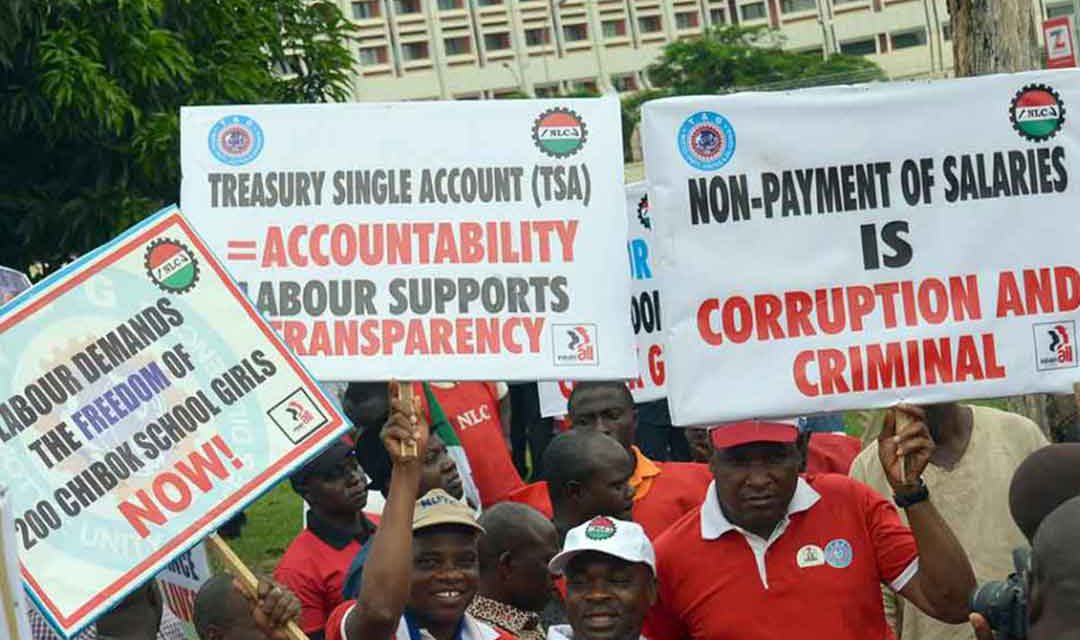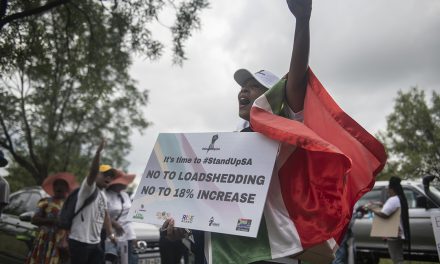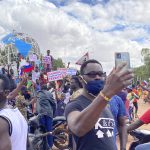- Nigeria needs to focus attention on procedural anti-corruption, embedded in the impersonal application of the law, institution-building, and matching of appropriate expertise to functions across the public oversight agencies.
- The statutory anti-graft bodies require a root and branch overhaul to strengthen their mandates and capacity. These include the Auditor-General and Ombudsman, and the Revenue Mobilisation Allocation and Fiscal Commission among others.
- Also, revamping the judiciary is key to set correct incentives and combat impunity through exemplary, regionally-balanced prosecution of high-level corrupt officials, past and present.
- Nigeria’s leader should emulate African best practices such as the Ghanaian president’s choice of a respected opposition figure to head Ghana’s anti-graft agency.
- Sustained citizen engagement and pressure is the bedrock of effective anti-corruption, with constant vigilance over functionaries untainted by the ethnic and other divisive distractions.
Nigeria is grappling with both historic and recently self-inflicted difficulties in its anti-corruption war. Stumbling blocks have proliferated to thwart the effectiveness of government’s efforts to revamp institutions, tackle mismanagement and wilful theft from the treasury. The operational challenges span institutional weakness, defective personnel, disregard for due-process and a proclivity to create media spectacle to the neglect of serious anti-graft investigations. There exist legion political failings too, such as the government’s lack of political will, questionable sincerity and the naked politicisation which has created sacred cows whilst damaging President Buhari’s credibility. Analysts will likely look back in a decade from now and adjudge his floundering anti-corruption drive as a case-study in how not to combat graft.
Slippery slope
The immediate spur for this article is the N1.4tn, which according to Nigeria’s junior oil minister, is now being spent annually on oil subsidy outside the regular budget. Essentially, the difference between the N171 cost of importing petrol per litre and the regulated N145 pump price is being funded from the accounts of the Nigerian National Petroleum Company (NNPC) as “under recovery”. It is a regrettable moved away from a not very transparent subsidy system towards one that is even more opaque in the extreme. The NNPC spends what is effectively billions of dollars on petrol subsidy, without any detailed account being rendered publicly or the underlying mechanisms transparently explained.
Little wonder that the NNPC has retraced its steps from its widely commended move in 2016 to publish monthly accounts of its financial position. With much of the earmarked subsidy disappearing into private pockets in years past, Nigeria now has even less of a chance at ensuring accountability with the present arrangement. The extant NNPC subsidy programme and the obfuscation over how it is financed away from legislative oversight is the biggest economic corruption scandal that Nigeria has seen in the past three years. And that is leaving aside the currency subsidy in the form of the N285 concessional rate at which the NNPC accesses dollars from the central bank for fuel importation.
Widespread apathy on the part of citizens has not helped to create effective pressure on public functionaries. Nigerians must be more willing to transcend the ethnic and other distractions better to maintain effective vigilance over politicians and bureaucrats. One example is the March 2018 revelation by Senator Shehu Sanni of the unappropriated N13.5m paid to each Nigerian senator monthly and a slightly lesser sum given to those in the lower legislative house as “running expenses”. This was just one in a series of scandals that should normally cause outrage. Nigerians though have failed consistently to leverage such opportunities for mass action to drive change. The bar for anti-corruption is set so low in Nigeria that citizens willingly credit Buhari’s mediocre achievement on graft.
Lacking substance
The logical and procedural flaws bedevilling Nigeria’s battle against graft are legion and threaten to drown the nation. The Buhari government’s lack of consistent attention to strengthening procedural accountability remains all-too-central to the difficulty dogging fiscal administration and reform. Changing this will be vital to improve our perception in the Transparency International ranking. For a government that prides itself on its anticorruption stance, the “invisible” subsidy represents a regrettable step backwards in terms of embedding transparency in the workings of government. Efforts to recover loots or to name and shame perpetrators are necessary. More important though is the reshaping of institutions and fine-tuning of processes throughout government to make it difficult to divert or intentionally mismanage public funds in the first place.
Nigeria’s government recently mandated the anti-corruption agencies to investigate violations of the Public Procurement Act of 2007. Many observers doubt the sincerity or even the political neutrality of this sudden show of interest in regularising procurement. It normally should be a routine process overseen by statutory bodies such as the Auditor-General’s office. The latter, however, has been of marginal relevance even as Nigerians agitate unsuccessfully for the public disclosure of the emolument package of national lawmakers. Neither the demand side petitions using Nigeria’s Freedom of Information Act of 2011 nor the supply side relying on the discretion of the Auditor-General’s office have led to this information being published. The Public Complaints Commission (the Ombudsman) remains moribund, which arguably suits errant functionaries. Similarly, the limitations of the Revenue Mobilisation Allocation and Fiscal Commission Board have been evident through episodes such as the Senator Shehu Sanni revelation on compensations not earmarked but illegally taken by Nigerian lawmakers.
The dominant incentive pattern determines the morality of a society. Alleged mismanagement of Nigeria’s treasury is left unpunished. From the outgone president, Goodluck Jonathan, to his predecessors, all remain immune. It is inconceivable that Nigeria could deter would-be offenders when current and past misdeeds are papered over. A bold anti-corruption leader would take risks in seeking exemplary prosecutions that touch errant public office holders from all of Nigeria’s geopolitical zones. That surely would give the lie to politicians who have always exploited our dysfunctionality and ethnic and religious fractiousness to allege that anti-corruption prosecutions are sectional or biased. Brazil’s former president Lula recently began a twelve year jail term for corruption. Jacob Zuma, South Africa’s immediate past president, is being swiftly brought to justice. In Nigeria, those who pocketed multiples of Zuma’s corruption proceeds still walk free.
False starts
Weaknesses, especially procedural ones, have been evident in Buhari’s anti-corruption style from the start. He began brightly by implementing the treasury single account initiative introduced by his predecessor. His government then controversially created multiple windows for foreign exchange. This remains one of the biggest lure to unearned income and large-scale arbitrage ever seen in Nigeria. The damage is only being partly mitigated by the recently introduced and more transparent investors and exporters segment. In legislative terms, the idea of a special anti-corruption court has been mooted but its lethargic consideration by our lawmakers contrasts sharply with their enthusiastic pursuit of the death sentence for kidnapping and hate speech crimes leading to the loss of victims’ lives.
The duplicity in Buhari’s anti-graft fight are littered all around for objective observers to see. This covers cases such as that of Babachir Lawal, former scribe to the government, and his alleged diversion of N220 million intended for those displaced by Boko Haram in the northeast. Ambassador Ayo Oke, former head of the National Intelligence Agency, allegedly hid $43million of government’s fund in a Lagos apartment. The National Health Insurance Scheme’s boss, Professor Usman Yusuf, was reinstated despite being under investigation for fraud involving N919 million. Abdulrasheed Maina, who escaped being arrested for a N2.7 billion pension scam, was brazenly reinstated into the civil service with a promotion. Although directives have been given by President Buhari that all personalities involved in the cases should be investigated, the delayed action from the top came mostly after public pressure.
For those seeking serious examples in prosecuting graft, the recent announcement of a partial and politicised list of so called treasury looters by Nigeria’s information minister is unlikely to inspire much confidence. By contrast, Ghana’s president set a good example in his surprising appointment of Martin Amidu, a respected and uncompromising anti-corruption crusader from the rank of the country’s opposition, to head his new anti-graft agency. With this appointment, Ghana’s president won the public over, sending out an unequivocal message about the genuineness of his effort. A few public figures once considered untouchable from both side of Ghana’s great political divide have since been hauled before the special courts for corruption.
Ghana’s achievement here is not a one-off. The revelation in 2015 by a brave investigator, Anas Aremeyaw Anas, who secretly filmed justices receiving bribes, led to the jailing and the premature termination of the career of several judicial functionaries. Nigeria, by contrast, was lethargic in dealing with revelation of justices stashing away corruptly obtained funds, including in a bathroom in one of the cases. The best that Nigerians got was obfuscation and a rare guard action of the sort that has effectively left disciplinary procedures for errant justices in the hand of the National Judicial Council. The body itself is perceived by many to be far from neutral and it can, in any case, only dismiss judicial officers. Its power does not extend to meting out sentences for wrong doers. What incentive patterns are being created when incidents of corruption involving judges cannot be prosecuted in normal courts presided over by one of their own peers but hushed away within disciplinary procedures?
Accepting the obvious
After clashing over the EFCC head, Ibrahim Magu, Nigeria’s president and lawmakers began an economically damaging standoff, which prevented the Central Bank’s monetary policy committee from meeting for months as lawmakers refused to conduct confirmation hearings for nominees to a slew of public offices. In the national interest, why didn’t the squabbling political actors save face by requesting the secondment of a top anti-corruption technocrats from the UK to replace Magu?
The UK’s Serious Fraud Office has been almost exclusively in charge of the corruption cases successfully pursued against Nigerian functionaries in the past two decades. British prosecutors helped to nail Nigerian politicians from Alameseigha to Dariye, through Ibori to Deizani Alison-Madueke. The latter’s case is still ongoing in London. A top level international hire to lead the EFCC will inspire younger Nigerian prosecutors to high professionalism. Exposure to a different managerial culture may also encourage them to prioritise professional investigation over the useless media trials.
Defects in the EFCC’s operational culture reflects the background of its heads to date. From Nuhu Ribadu to Farida Waziri all the way to Ibrahim Lamorde and Ibrahim Magu, each has been a career police officer. Leading the EFCC effectively requires skillsets beyond the core policing functions. Serious damages have been incurred as government unwisely side-steps the rule of law. Examples include the continuing detention of Sambo Dasuki, former National Security Advisor, in disregard of court orders. Nothing is more injurious to Nigeria’s bid to instil discipline, probity and accountability than a government which undermines the law in its ill-conceived and incompetent pursuit of justice.
A foreign EFCC head will operate in the full glare of the international community, likely enhancing their immunity from political pressure, manipulation or even blackmail. This is not to suggest that Nigeria lacks suitably qualified citizens who can do the job or that a foreign recruit will approximate a saint. Rather, it is a call for the closing of the circle, to welcome direct and constructive inputs from better-equipped partners that have given Nigeria copious anti-corruption support in recent years. UK prosecutors are especially well-positioned with the unrivalled wealth of financial intelligence they possess on corrupt Nigerian individuals. If Buhari dared, he might find in a foreign anti-corruption czar an invaluable counsel that could boost his ostensible bid to save Nigeria from corruption. That might also strike fear into a few corrupt figures in high places. In the meantime, Nigeria’s future success is increasingly less certain as its self-serving elites pay lip-service to anti-corruption whilst immune from popular pressure.
Dr Julia Bello-Schünemann is a multilingual research consultant. She is versed in integrated forecasting across sectors (including demographics, infrastructure, economics, conflict and violence, etc.), trend and risk analysis, data analysis, policy advice for governments and international organisations. Her expertise straddles Africa, Latin America, the Caribbean, and the European Union. She possesses vast experience in project management, fundraising, strategic planning, multi-stakeholder consultations, training and facilitation. She is currently an Associate Senior Research Consultant with Good Governance Africa-Nigeria. She holds a PhD in International Relations from the Complutense University Madrid, Spain and an MA in Communication, Political Science and Economics from Ludwig-Maximilians-University, Munich in Germany.











